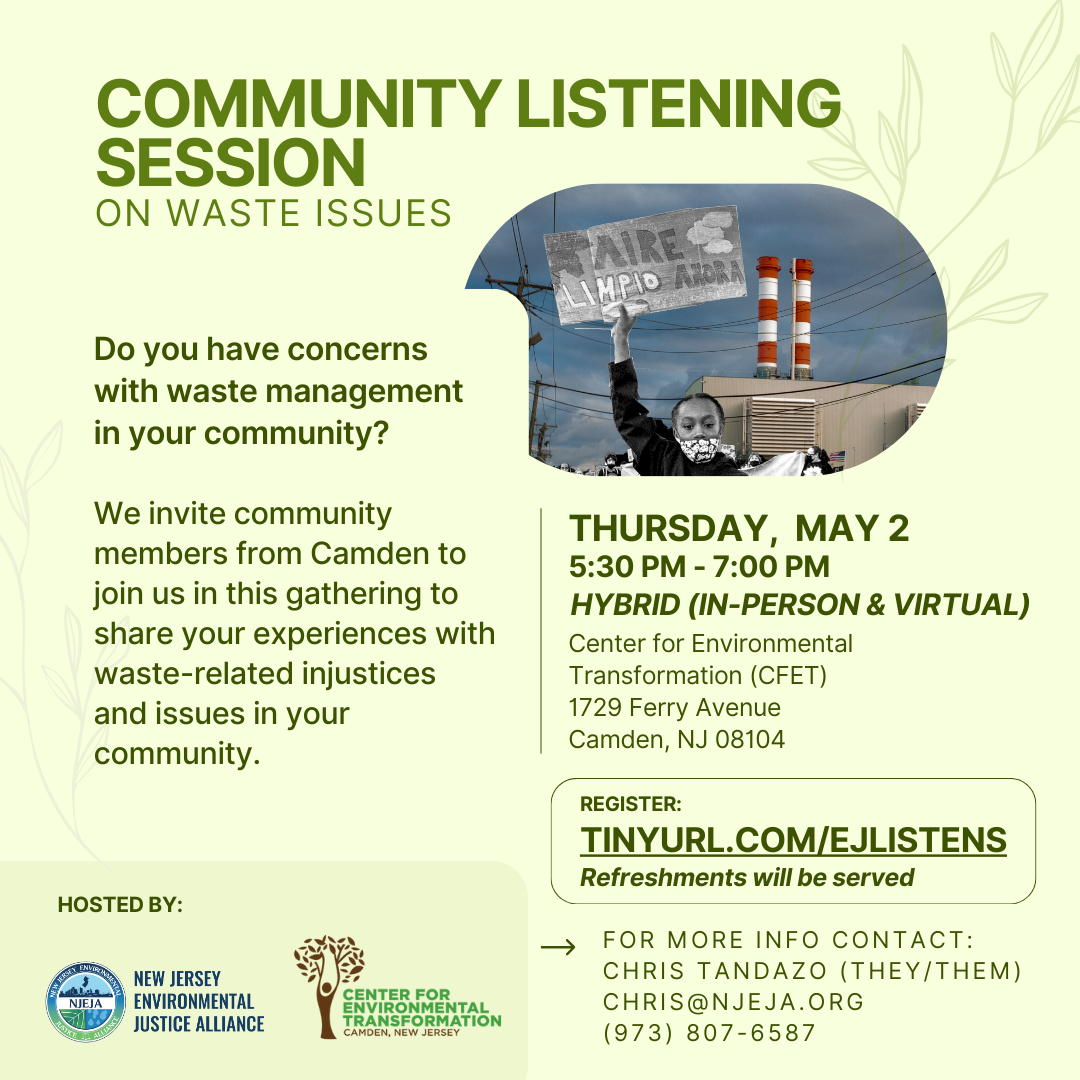New Jersey Environmental and Environmental Justice Advocates gathered alongside medical professionals to discuss the urgency and necessity of solutions to the plastic waste crisis. Speakers included experts from Environment New Jersey, Just Zero, Clean Water Action, and New Jersey Environmental Justice Alliance as well as NJ Pulmonologist Dr. Walter Wynkoop and Rutgers University Pharmacology and Toxicology Professor Dr. Phoebe Stapleton.
On the eve of the last NJ Senate Energy and Environment Committee, advocates called on legislators to pass Senate Bill S. 3398, Packing Product Stewardship Act sponsored by Sen. Bob Smith. In particular, advocates called on the legislature to include strong provisions to reduce toxics in packaging, eliminate any exemptions to the law, ensure chemical recycling was not included as an alternative to true recycling, and to provide for strong accountability and transparency requirements. With nearly 40% of plastic used for packaging, the need for this bill is incredibly apparent. View the press conference and read the full press release below.
Read the full press release




